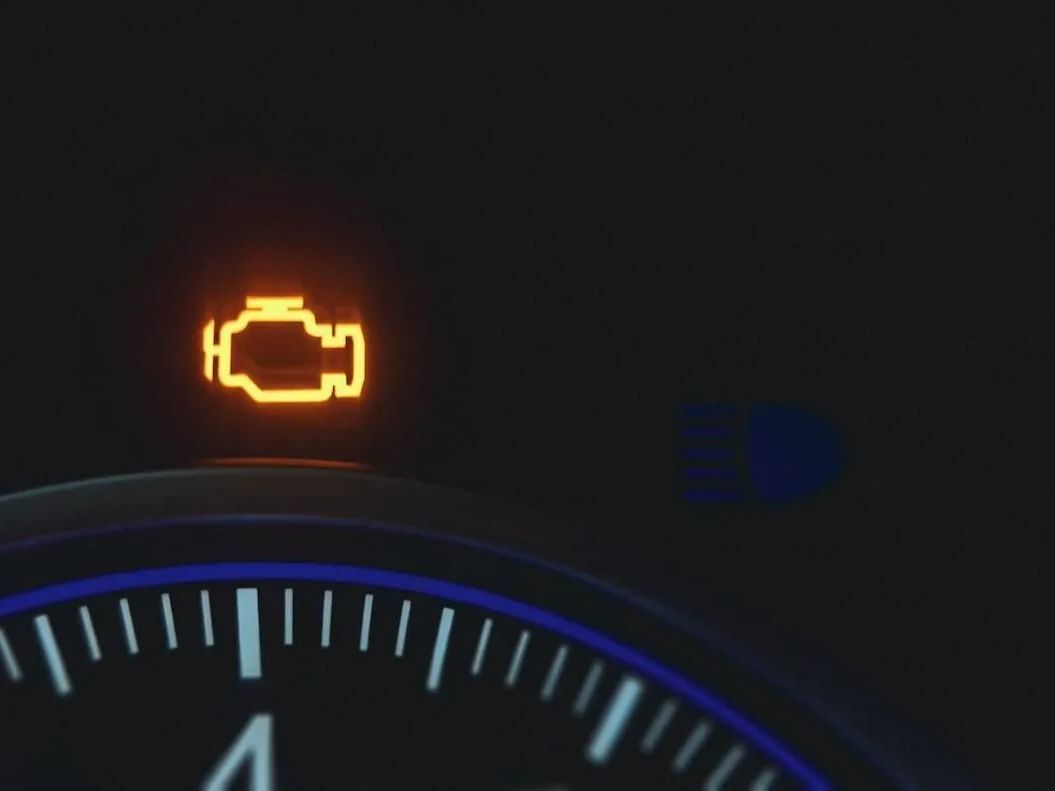Check Engine Light Service
Understanding the Check Engine Light: Importance, Causes, and Effective Solutions
One of the biggest benefits of modern cars is their advanced automotive tech. The onboard diagnostic system (OBD-II) is one of the essential tech-powered electric systems in modern vehicles. Your vehicle’s OBD-II controls the check engine light, which is popularly called the malfunction indicator lamp.
As a vehicle owner, you should know some of the issues that trigger the check engine light so you don’t brush it off. Instead, schedule for a professional diagnosis and repair at a top auto garage such as Optimize Garage.

7 Common Causes of Check Engine Light
1. Misfiring Engine
An engine misfires when one or more cylinders fail to ignite the fuel mixture properly. Various issues can cause this situation, including:
- A malfunctioning ignition coil
- Fouled spark plugs
- Clogged or faulty fuel injectors
- Vacuum leaks
- Defective or dirty mass airflow sensor
When your vehicle’s engine misfires, it causes the check engine light to illuminate and keep flashing or blinking. If your check engine light is on, you should seek a professional diagnosis immediately and have the issue repaired before the engine sustains more damage.
2. Faulty Sensors
The engine sensor control system contains multiple sensors, including the oxygen sensor, mass airflow sensor, throttle position sensor, temperature sensor, knock sensor, flow sensor, and pressure sensor.
Each sensor tracks specific engine operations, converts the information into electrical signals, then relays them to the onboard diagnostics system. If any sensor is dirty or damaged, it will trigger the check engine light.
3. Emission Control System Problems
Emission system problems have various causes:
- Dirty air filters
- Faulty or clogged catalytic converter
- Malfunctioning oxygen sensors
- Exhaust leaks
Any of these problems will cause the check engine light to illuminate. However, some newer vehicles will flash a more specific “emission system problem” warning light.
4. Fuel System Issues
The fuel system distributes fuel to the engine from the gas tank. A defective fuel pump or clogged or leaking fuel lines and filters can cause fuel system issues. Improperly distributed fuel interferes with the engine’s operations, causing it to sputter and lose power occasionally. When this issue occurs, the check engine light turns on.
5. Exhaust Gas Recirculation (EGR) System Issues
The EGR system controls harmful nitrogen oxide formation and helps reduce the engine temperature when your vehicle is at top speed. Several factors, including malfunctioning EGR valves, poor sensors, loose vacuum hoses, or open eclectic circuits, may cause EGR system issues which can trigger the check engine light.
6. Loose or Damaged Gas Cap
A loose gas cap is one of the most straightforward triggers of the check engine light. A loose or cracked gas cap allows dirt and vapor to leak in and contaminate the fuel. Leaks in the gas caps trigger the malfunction indicator lamp (MIL) quickly, but the light disappears once you fix the gas cap.
7. Ignition System Problems
Ignition problems have several causes, including faulty spark plugs or wires, malfunctioning camshaft or crankshaft position sensors, or a non-functional ignition module. Such issues cause the check engine light to illuminate.
Why You Should Seek Professional Diagnosis and Repair
The check engine light doesn’t point to a specific car issue. Sometimes it may appear because of humidity changes even when your vehicle functions optimally. But remember, the MIL may also indicate serious engine issues that can compound if you don’t solve them early. As a preventative maintenance measure, you should get your car checked by the qualified mechanics at Optimize Garage as soon as you see the check engine light
Diagnostic Procedure for the Check Engine Light
Every time the check engine light pops up, the onboard diagnostics system generates error codes that explain the problem in detail. Specialized diagnostic tools and scanners retrieve these error codes and analyze them to resolve the issue.
This diagnostic procedure is quite technical and complex, so you shouldn’t attempt DIY checks if you don’t have the working knowledge to retrieve, analyze, and reverse engineer these error codes. Rather, you should seek check engine light service from Oakdale, MN top auto garage.
Let Optimize Garage Check Your Check Engine Light To Prolong Engine Life and Performance
At Optimize Garage, our seasoned automotive experts have spent decades diagnosing the check engine light on different vehicle models. When you bring in your vehicle, our auto mechanics will perform a full diagnostic of your service light and come up with a comprehensive plan to have the issue taken care of and the code reset and removed.
And in case you need replacement parts such as knock sensors, we’ll get you the best quality OEM parts specially designed for your vehicle. At Optimize Garage, you get everything under one roof, from quality replacement parts to excellent vehicle repair and maintenance services.
As soon as you see the check engine light flash, request our services at our Oakdale, MN location.


